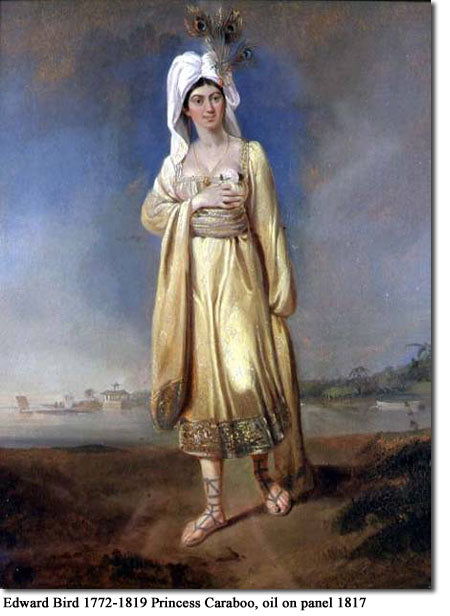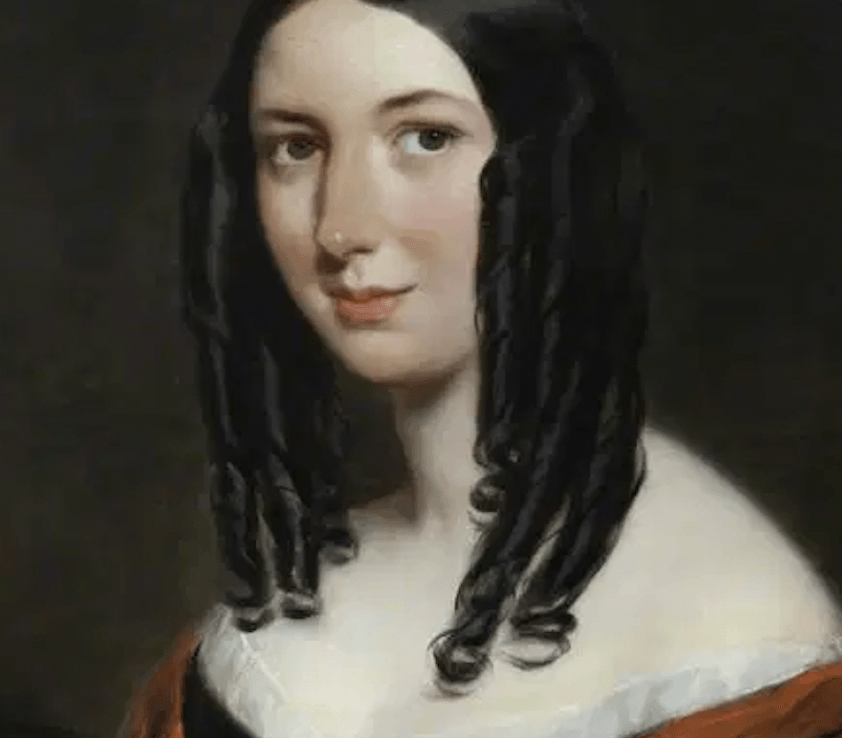Joseph Paisley: 'The Celebrated Gretna Green Parson'
"My dear Harriet,
You will laugh when you know where I am gone, and I cannot help laughing myself at your surprise to-morrow morning, as soon as I am missed. I am going to Gretna Green, and if you cannot guess with who, I shall think you a simpleton, for there is but one man in the world I love, and he is an angel. I should never be happy without him, so think it no harm to be off. You need not send them word at Longbourn of my going, if you do not like it, for it will make the surprise the greater when I write to them and sign my name Lydia Wickham. What a good joke it will be!
-Jane Austen, 'Pride and Prejudice'
Joseph Paisley was born around 1730, just south of Gretna Green. Described as a tall and well built man, tradition states that Paisley was a tobacconist turned blacksmith, but after working as the latter for some time, felt that there was more money to be had in marrying young couples. A self styled priest, Paisley is largely responsible for the folklore that surrounds Gretna Green. Today, interest in Gretna Green has revived what with the rising popularity of Regency history, and thanks to the efforts of a dedicated few Gretna Green's Famous Blacksmith Shop has been turned into a visitor attraction. We thought it fitting to share with our readers a charming account of Paisley that appeared in the Lady's Magazine, or Entertaining Companion for the Fair Sex, Appropriated solely to their Use and Amusement, in May 1811.
To the Editor of the Lady's Magazine
SIR, I inclose you an Account (from the Carlisle Journal) of the Gretna-Green Parson, who died a few days ago, as also an etching, which is an excellent likeness, and was taken some years ago, by a neighbouring country lad, without the knowledge of the Parson; he not being willing to sit for such a purpose. If you think them worth publishing, they are at your service. In addition to the printed account, I can assure you that, about eighteen months ago, in the presence of a friend of mine, who called upon him, (although in the afternoon, and having previously drank a great deal, as usual) he swallowed seventeen glasses of raw brandy. I am, &c. JOHN NORMAN Kirkandrews, near Carlisle.

Joseph Paisley, of coupling celebrity, was born on the borders of England, in the year 1728, or 1729, at the obscure hamlet of Lenoxtown, about a mile distant from Gretna Green; at which place, and at Springfield (its immediate neighbour) the subject of this memoir had, for half a century, continued to weld together the chains of matrimony, and to render happy or miserable great multitudes of anxious lovers,---Early in life, Paisley was bound apprentice to a tobacconist; but, becoming disgusted with this employment, he changed it for that of a fisherman, and was allowed by his brethren to bear the palm on all occasions where strength and agility were required. It was in this humble capacity that he was initiated into the secrets of a profession, which he managed with such address. He had formed a connexion with one Walter Cowtard, who lived very near to Sarkfoot, upon the sea-shore; and who, strange thought it may appear, was both a smuggler and a priest! Old Watty had the misfortune to be but indifferently lodged, having "a reeky house," and, what is perhaps worse, a scolding wife, so that he was necessitated to perform the marriage ceremony on the open beach, among the furze, or, as it is provincially called, whins. On these occasions, young Paisley officiated as clerk.
But our hero had ambition, and he only wanted an opportunity for its exertion. An occasion soon offered itself;---one time Watty went to the Isle of Mann, for the purpose of fetching over a cargo of contraband brandy; whilst his assistant remained at home to perform the necessary rites during the absence of the former. Finding that he could rivet the matrimonial bond equally as well as his master, and being at the same time under some pecuniary embarrassment, he began business on his own account, and, by his ability and address, soon overcame all competition. About the year 1794, he was served with a subpoena to give evidence at Bristol respecting the validity of a marriage. It was expected by thousands that the event of the trial would put an end to Joe's matrimonial career; the contrary, however, took place; for, by his dexterous management, he not only succeeded in rendering the match valid, but was enabled to follow his favorite profession with increased security. During this journey, he visited the metropolis, where he was much noticed by the nobility and gentry. Had he been of a covetous disposition, he might speedily have accumulated a considerable fortune; but, since the time to which we allude, he has never been distant a single mile from Springfield. Of Joseph's personal strength I have heard many well-authenticated accounts, which I well believe from feats which I myself have seen him perform. His strength of arm was prodigious:---he could have taken a large oaken stick by the end, and continued to shake it to and fro, until it went to pieces in the air!!! The excellence of his constitution was likewise often tried; though it must be allowed that his intemperance was proverbial, yet he reached his 82d year.
He was accustomed to relate with great pleasure a celebrated achievement, in which he and a jovial companion, a horse-breaker, were once engaged; when they consumed the amazing quantity of ten gallons of pure brandy in the short space of sixty hours; and, what is more, these two thirsty souls kicked the empty cask in pieces with their feet, for having run dry too soon. It may be conjectured that the conversation of such a character could not be very engaging; juvenile feats of activity, and his beloved brandy, formed the chief topics of his discourse, which, until very lately, never turned upon religious subjects. But let justice be done to the character of the man. It must be allowed, indeed, that he was too fond of a stoup of liquor, and was of coarse and unpolished manners; but he certainly was not addicted to profane talking, and obscene discourse, as a neighbouring journalist has roundly asserted. Without hazard of contradiction, it may be averred, that he was a very honest and charitable man, and inoffensive neighbour, and that he was generally respected by all who knew him. Paisley is succeeded in the capacity of coupler by a young man, a friend of his; and there is no fear that the business will fall off, as three weddings have already taken place since the interment of the old man.
Enjoyed this article? If you don't want to miss a beat when it comes to Jane Austen, make sure you are signed up to the Jane Austen newsletter for exclusive updates and discounts from our Online Gift Shop.




1 comment
My sixth great grand father .Only found this,out,which is funny,as I have my own small anvil wotk shop.for a hobby purpose,and maybe this is where I get my drinking ability l
.
Andrew
Leave a comment
This site is protected by hCaptcha and the hCaptcha Privacy Policy and Terms of Service apply.